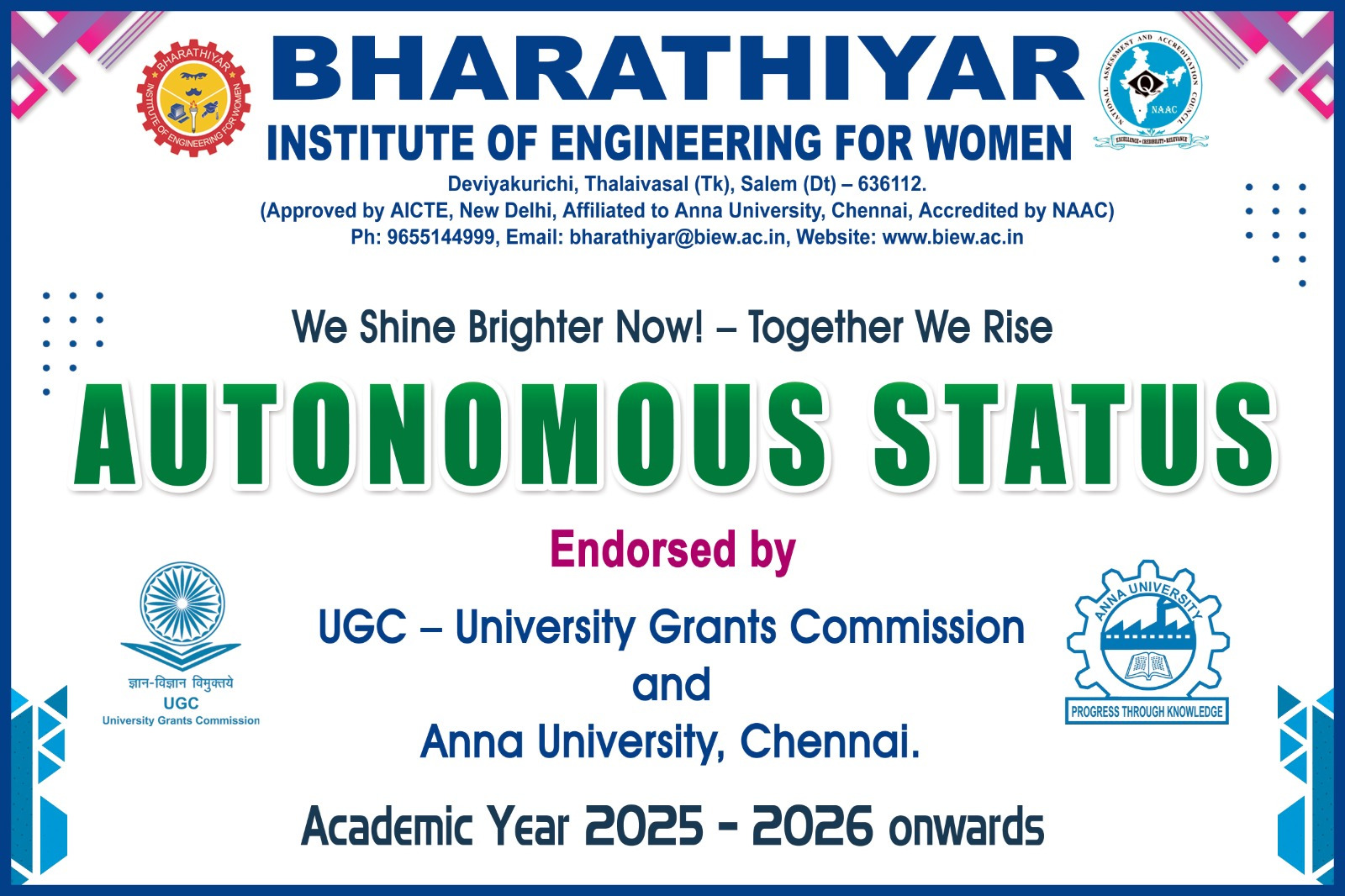ELECTRONICS AND COMMUNICATION ENGINEERING
ELECTRONICS AND COMMUNICATION ENGINEERING
About the department
Department of Electronics and Communication Engineering was started in the year 2008 with a sanctioned intake of 60. Later in the year 2011, the Department had additional intake of 60. In the year 2012, Department has initiated it PG-Communication System with Sanctioned intake of 18. Department of ECE is shaped with well qualified senior professors and dynamic young staffs. A degree in Electronics and Communication Engineering gives an opportunity to work in diverse establishment like Telecom, Satellite and Space Research, Hardware and Software industry and also in the exciting field of Radio Astronomy.
The department has well established VLSI, DSP, Network, Optical and Microwave Labs in addition to other basic labs in Electronics and Communication Engineering. The latest version of MATLAB, Xilinx and ModelSim, Network Simulator and Keil software are available.
Department of ECE formed an Association in the name of “SMARTACE” organize International and National level seminars, Workshops, Conference and various trainings for the students to develop their skills. This makes a wide platform for young talents to exhibit their skills.
Vision
-
To become Pacesetter in the field of electronics and Communication Engineering by imparting a core set of transferable skills and human values to create a wide range of Proficient Engineers, Innovators, Researchers and Entrepreneurs.
Mission
-
To enhance technical education in the field of Electronics and Communication Engineering and intellect the students for professional careers.
-
To impart core skills and Human values through persistent teaching learning process.
-
To keep abreast with latest technological innovations to enhance the research and development activities.
-
To empower ethical communication engineers to meet the growing challenges of the industry and society.
Program Educational Objectives (PEOs)
The Program Educational Objectives (PEOs) of Electronics & Communications Engineering (ECE) represent major accomplishments that the graduates are expected to achieve after three to five years of graduation.
PEO 1 -will excel in profession and in higher education by getting key information in basic engineering principles and computational abilities
PEO 2-will exhibit their Leadership abilities in professional environment and lead the society as women entrepreneur
PEO 3-will acquire adequate knowledge in hardware and software skills to hold / handle technical challenges.
PEO 4-will dissect the technical constrains in the field of electronics and communication engineering and shall engage in lifelong learning
Program Specific Outcomes (PSOs)
Graduates of Electronics & Communications Engineering (ECE) will be able to
PSO1: Apply the principles of advanced communication systems, IoT based embedded systems, Advanced Signal & Image Processing, modern Semiconductor Technologies to develop digital forums.
PSO2:Develop their individual identities to adapt, understand and resolve the problems associated with wireless communication network as an individual or in a team with responsible view towards the society and environment.
PROGRAM OUTCOMES (POS):
On successful completion of the program
- Engineering knowledge: Apply the knowledge of mathematics, science, engineering fundamentals, and an engineering specialization to the solution of complex engineering problems.
- Problem analysis: Identify, formulate, review research literature, and analyze complex engineering problems reaching substantiated conclusions using first principles of mathematics, natural sciences, and engineering sciences.
- Design/development of solutions: Design solutions for complex engineering problems and design system components or processes that meet the specified needs with appropriate consideration for the public health and safety, and the cultural, societal, and environmental considerations.
- Conduct investigations of complex problems: Use research-based knowledge and research methods including design of experiments, analysis and interpretation of data, and synthesis of the information to provide valid conclusions.
- Modern tool usage: Create, select, and apply appropriate techniques, resources, and modern engineering and IT tools including prediction and modeling to complex engineering activities with an understanding of the limitations.
- The engineer and society: Apply reasoning informed by the contextual knowledge to assess societal, health, safety, legal and cultural issues and the consequent responsibilities relevant to the professional engineering practice.
- Environment and sustainability: Understand the impact of the professional engineering solutions in societal and environmental contexts, and demonstrate the knowledge of, and need for sustainable development.
- Ethics: Apply ethical principles and commit to professional ethics and responsibilities and norms of the engineering practice.
- Individual and team work: Function effectively as an individual, and as a member or leader in diverse teams, and in multidisciplinary settings.
- Communication: Communicate effectively on complex engineering activities with the engineering community and with society at large, such as, being able to comprehend and write effective reports and design documentation, make effective presentations, and give and receive clear instructions.
- Project management and finance: Demonstrate knowledge and understanding of the engineering and management principles and apply these to one’s own work, as a member and leader in a team, to manage projects and in multidisciplinary environments.
- Life-long learning: Recognize the need for, and have the preparation and ability to engage in independent and life-long learning in the broadest context of technological change.



 Feedback
Feedback
